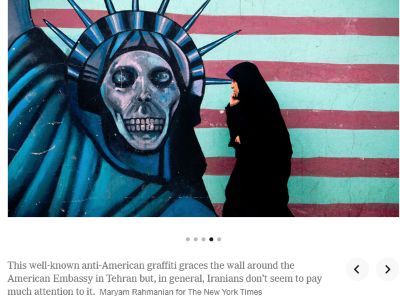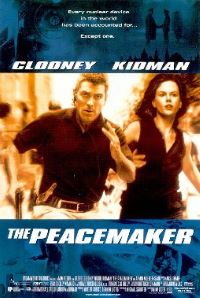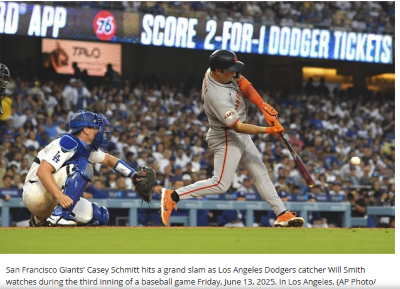
The countdown to the midterms is under 100 days. It still proceeds on a day-to-day basis but mentally a threshold has been crossed. A bigger one to come on Labor Day is only a few weeks away. The primaries are drawing to a close. The intensity of the showdown for control of Congress and various states will ratchet up.
The current president has vowed to campaign as much as necessary in targeted areas throughout the country. Indeed, he feeds on the energy of the professional wrestling arena just as we feed on food. But what message will he be delivering as he crisscrosses the country in his determination to stave off the dreaded blue wave and avoid being impeached?
In this situation it is appropriate to examine the campaign of another president. In 1984, Ronald Reagan, the incumbent president, campaigned throughout the land. At that time, Republicans could win at the state level even in California and the color on the TV maps for Republicans was blue. Times have changed.
Although the campaigns in 1984 and 2018 are not exact parallels, it remains instructive to examine the message Reagan delivered and compare it to where we are today. A lot of my information comes from the book The Boys of Pointe du Hoc: Ronald Reagan, D-Day, and the U.S. Army Second Ranger Brigade by Douglas Brinkley as excerpted in U.S. News & World Report in the June 6, 2005 issue, a year after Reagan’s death on June 5, 2004. Reagan’s speech on June 6, 1984 at Normandy was on the 40th anniversary of the D-Day invasion on June 6, 1944.
According to Brinkley, the idea in the visit to England and France included showcasing Anglo-American unity between Reagan and Prime Minister Margaret Thatcher. Needless-to-say, the contrast between the present president mocking the present prime minister of England or Great Britain or the United Kingdom or wherever, could not be greater. And our current president of course, then denied that he had done so as fake news, another example of the trouble he would be in if he ever testified under oath.
Turning back to 1984, one theme of Reagan’s talk was how the postwar coalition had kept the peace for the longest period in modern European history. One might add, that for Franklin Roosevelt who had grown up in a world where war against Germany was the norm (Franco-Prussian, WWI, WWII), the idea of decades of peace among the same nations was wishful thinking and inconceivable. Roosevelt understood the need for allies and why defending Montenegro was important.
Brinkley then turned to Peggy Noonan, Reagan’s speechwriter. She would become most famous for her “thousand points of light,” a vision our current president mocks. Brinkley reported that Reagan was at his best when he told heartfelt stories about real people. He was blessed with a genuine showbiz gift for a lively narrative and fabulist history. These last words of Brinkley strike us differently today now that we have a president who resides in the artificial reality of Trumpietown.
But Noonan suspected that during the speech Reagan would choke up. He would be overcome by the experience – its setting, the audience, and his words. I suspect Reagan did not feel your pain to exploit it but more drawing on his actor background, he internalized it. The emotion of his audience became his genuine emotion as well. In other words, his own ability to bring out the emotion in others created a feedback loop to himself. He was a person of empathy who helped create the very emotions he was to feel.
D-Day then became a metaphor for the campaign message of 1984. The Americans in the audience had helped reclaim the European continent. Americans had fought for freedom against the Nazis in the past; Americans had an obligation to fight for freedom against communism and the Soviet Union in the present. Others would express the sentiment that “some people are communists, some people are capitalists, why can’t we all live together”, the Soviet Union will endure forever. Reagan felt differently. The Evil Empire must be defeated if we are to be free. As it turned out, the clueless elites had no idea the Iron Curtain would fall, Putin’s worst day in history, one he wishes to reverse today.
Shortly after Reagan’s death in 2004, staff writer Roger Simon for U.S. News &World Report, wrote “Sunny Side Up, Always” (June 21, 2004). He wrote of Reagan knowing that movies were fantasy and that Americans loved fantasy. Fantasy was a world in which Reagan like to dwell. According to Pat Buchanan, “For Ronald Reagan, the world of legends and myth is a real world. He visits it regularly.” It was a can-do world of optimism, smiles, and a can-do attitude.
Reagan expected everything to work out because it always had for America. What Americans needed was a leader who could give them a sense of confidence, inspiration, and hope.
“’LET’S MAKE AMERICA GREAT AGAIN!’ HE SAID.”
Simon reported that Reagan’s “morning in America” and “city on a hill” were designed to stand in marked contrast to the gloom and doom of President Jimmy Carter’s malaise.
Simon closed his article with two quotations, one from 1994 when Reagan announced he had been diagnosed with Alzheimer’s disease. I am combining them here.
And whatever else history may say about me when I’m gone, I hope it will recall that I appealed to your best hopes, not your worst fears, to your confidence rather than your doubts.
When the Lord calls me home, whenever that may be, I will leave with the greatest love for this country of ours and eternal optimism for the future. I know begin the journey that will lead me into the sunset of my life. I know that for America there will always be a bright light ahead.
In the same issue, David Gergen, advisor to multiple presidents and regular talking head today, wrote:
Last week, as we heard so often, Regan repeatedly told audiences that America’s role was to be “a shining city up on hill.” He spoke lovingly of that vision in his farewell address, as he prepared to leave the White House. What should not be forgotten is the farewell address to Massachusetts that a fellow member of his generation, John F. Kennedy, gave as he was preparing to move into the White House. “I have been guided by the standard John Winthrop set before his shipmates on the flagship Arbella 331 years ago, as they too, faced the task of building a new government on a perilous frontier. “We must always consider,” he said, “that we shall be as a city upon a hill-the eyes of the world are upon us.”
Gergen closed with a sigh that “We mourned last week not only for Ronald Wilson Reagan but for the spirit we miss so much now.” How much more must he miss that spirit today?
One last “city on a hill” citation by an American before turning to a Russian. In his eulogy, former Senator John Danforth said:
Winthrop believed that the eyes of the world would be on America because God had given us a special commission, so it was our duty to shine forth. The Winthrop message became the Reagan message. It rang of optimism, and we longed to hear it….
If you have had your fill of this sunny optimism and the vision of America as a city on a hill that the eyes of the world are upon, then now let’s turn an alternate version. This dismissal comes from someone familiar with the concept of American exceptionalism and who strongly opposes it. It was written shortly after then President Obama had delivered an address to the American people in the tradition of American presidents up until our current one touting America’s place in the world and in human history.
Here is what Vladimir Putin said in an op-ed piece printed in the New York Times on September 12, 2013 following Obama’s address:
I carefully studied his address to the nation on Tuesday. And I would rather disagree with a case he made on American exceptionalism, stating that the United States’ policy is “what makes America different. It’s what makes us exceptional.” It is extremely dangerous to encourage people to see themselves as exceptional, whatever the motivation….We are all different, but when we ask for Lord’s blessings, we must not forget that God created us equal.
“Amen,” says American President Donald Trump. When Putin and Russia are accused of evil deeds, Trump is the first to say we have done bad things, too. He never exclaims on American exceptionalism or its role in history except to denigrate it.
Donald Trump does not share with Barack Obama a belief in American exceptionalism.
Donald Trump does not share with Ronald Reagan a belief that we are a city on a hill that the eyes of the world are upon.
Donald Trump does not share with Abraham Lincoln a belief that we are the last best hope of humanity.
Donald Trump does not believe in the American Dream.
When Donald Trump campaigns in the 2018 midterm elections, he will espouse the vision of Vladimir Putin and not that of Ronald Reagan. And he will do so to cheering Republicans. Who would have predicted a generation after the Iron Curtain fell, that Republicans would have abandoned the sunny optimism of Reagan for the dismal deception of Putin’s Trump?





